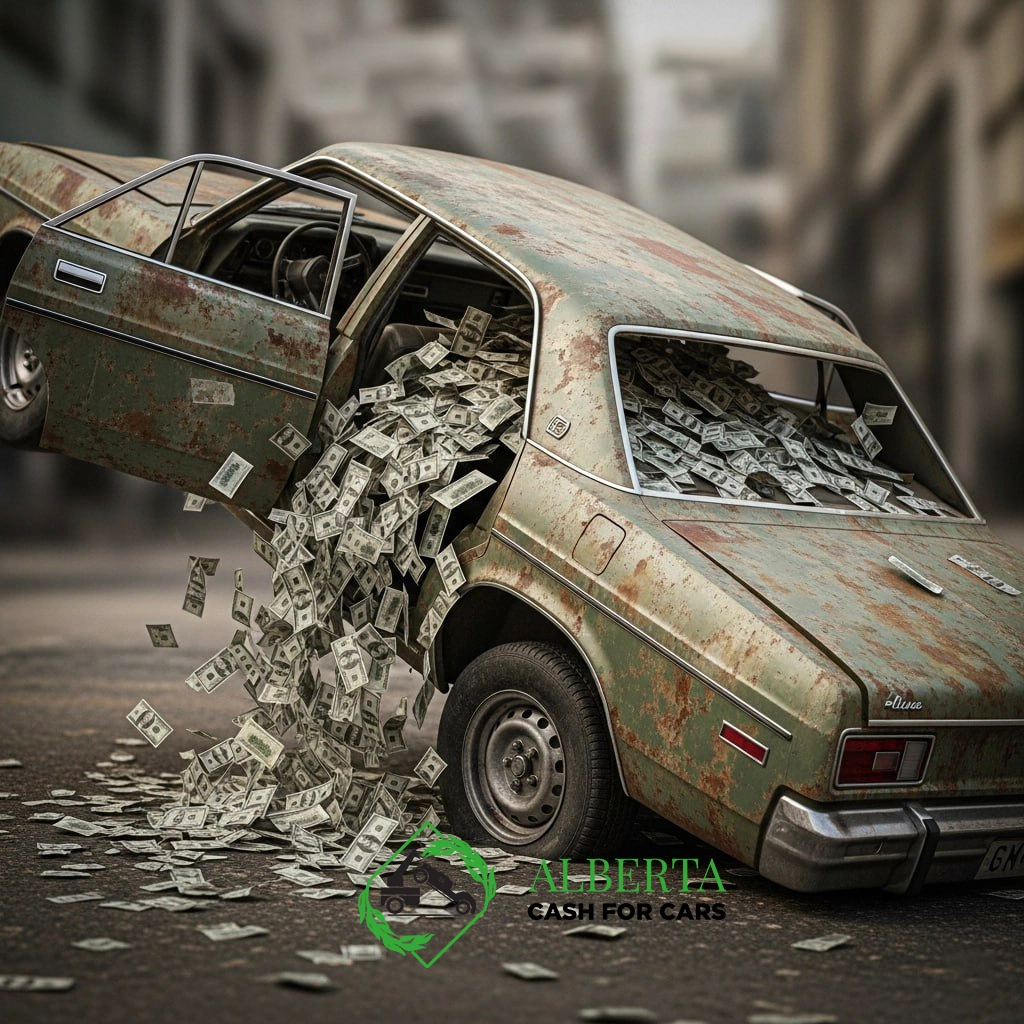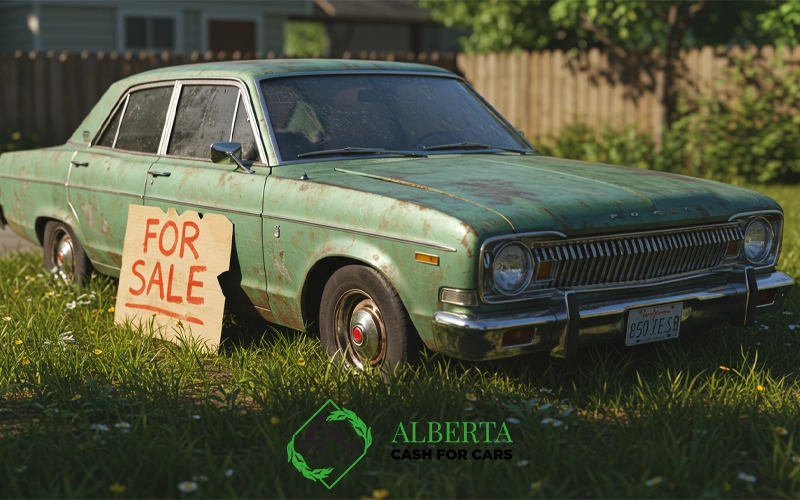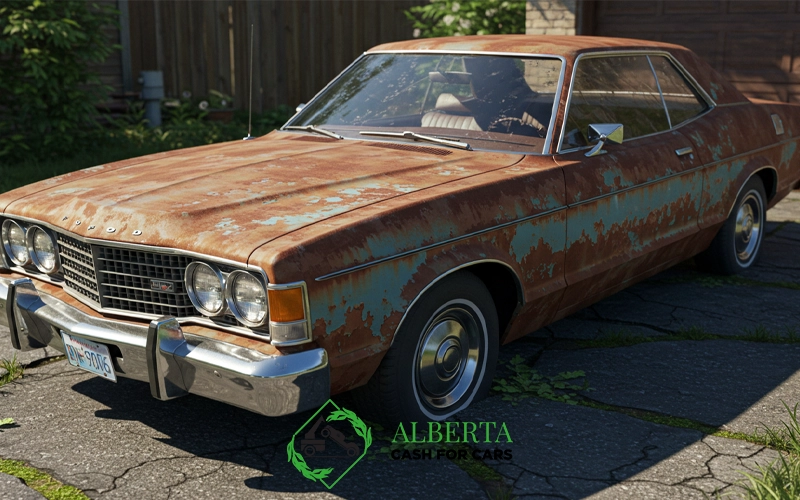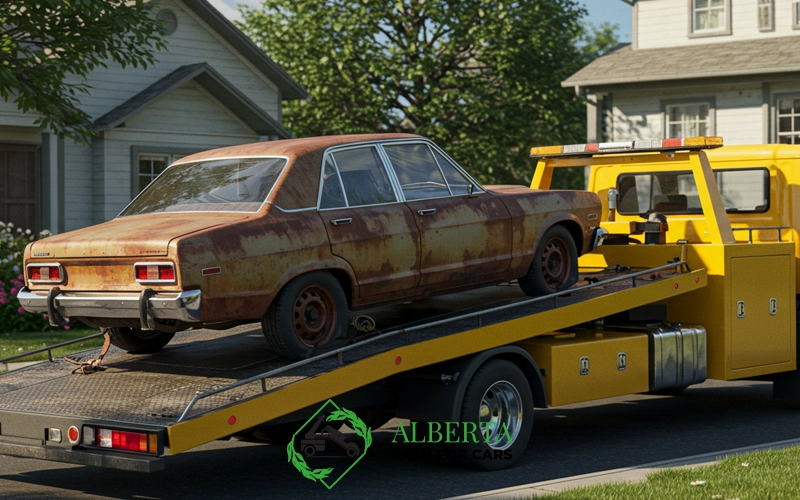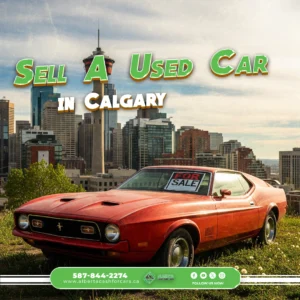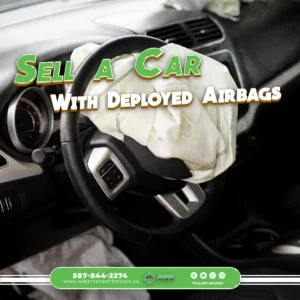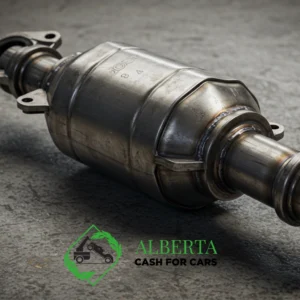Oh, that old car sitting in your driveway or backyard. You know the one. It’s been there for months, maybe even years, slowly gathering dust, leaves, and maybe a few resident squirrels. You tell yourself you’ll get around to fixing it, or selling it, or doing something with it, eventually. But in reality, that “eventually” often turns into an expensive, unseen drain. You might not realize it, but there are significant hidden costs of keeping a junk car that can quietly eat away at your budget and peace of mind.
It’s easy to think, “Well, it’s just sitting there; it’s not costing me anything.” But that couldn’t be further from the truth. From sneaky fees to missed opportunities, a non-running or unwanted vehicle can be a surprising financial burden. You might be shocked when you tally up the true expense of holding onto that automotive relic.
So, let’s pull back the curtain with the Alberta Cash for Cars blog and reveal the surprising hidden costs of keeping a junk car that many people overlook. Understanding these can help you decide it’s finally time to part ways with that old clunker. whether you’re in a bustling city or a quiet corner of Alberta, this blog can help you with your Cash for Cars Calgary experience.
The Obvious (But Often Ignored) Costs

Before delving into the more surprising hidden costs of keeping a junk car, it’s important to acknowledge several expenses that, while seemingly obvious, are frequently overlooked. Even if your car is stationary, you might still be paying insurance, even if only minimal liability or comprehensive coverage for theft or damage, which represents a direct, ongoing financial drain.
Similarly, if you haven’t formally cancelled the registration, you could be incurring annual registration fees for a vehicle that isn’t even on the road—a clear waste of money. Depending on your location, property taxes on vehicles, even those not in use, can also silently accumulate. Furthermore, any money spent on minor repairs that never materialize, such as initial diagnostics or parts purchased for a stalled project, ties up funds in a non-functional asset. Individually, these costs may appear minor, but over time, they compound significantly.
The Truly Hidden Costs of Keeping a Junk Car
Beyond the immediately apparent expenses, the most substantial and often overlooked drain on your resources stems from the opportunity cost of space. Consider your driveway or garage: is that derelict vehicle monopolizing valuable real estate where your functional car could be parked, protected from the elements, or where you could store valuable items, pursue hobbies, or simply have extra room?
If it’s in your yard space, it’s usurping usable outdoor area that could otherwise be transformed into a vibrant garden or a recreational zone for children or simply contribute to a more aesthetically pleasing environment. Furthermore, if you’re resorting to paying rental fees for a dedicated storage unit or separate lot to house your junk car, this becomes a direct, measurable, and entirely avoidable expense. The true economic cost of the space your junk car occupies might not appear on a monthly utility bill, but it undeniably represents a lost opportunity to utilize that valuable area for something far more beneficial or productive.
Environmental and Community Costs (and Potential Fines!)
A stationary, decaying vehicle isn’t just an eyesore; it can become an environmental hazard and a magnet for trouble.
- Fluid Leaks: Even if it’s not driven, old cars are prone to leaking fluids—oil, coolant, transmission fluid, and battery acid. These can seep into the ground, contaminating your soil and potentially groundwater. This isn’t just bad for the environment; it could lead to costly clean-up if authorities get involved.
- Pest Infestation: An abandoned car is a perfect home for rodents, insects, and other unwanted critters. These pests can then migrate to your home or garden, creating even more problems.
- Property Value Deterioration: A junk car on your property detracts from your home’s curb appeal. If you’re looking to sell your house, that eyesore could actually lower your property’s perceived value and deter potential buyers. Who wants to buy a home with a rusty, broken-down vehicle in the yard?
- Bylaw Fines: Many municipalities have bylaws against unsightly property, including non-operational or derelict vehicles. Your neighbors might complain, leading to official warnings and escalating fines if the car isn’t removed. These can quickly add up, turning a “free” storage situation into a very expensive one.
- Tire Degradation: Tires on a stationary vehicle can develop flat spots or simply degrade due to sun exposure and age, making them unusable if you ever decide to move or fix the car.
Read Also: Selling a Car With an Oil Leak
Missed Opportunity to Get Cash (or Save Money)
Even a completely non-running or severely damaged vehicle retains a residual lost selling potential; its components, from the engine and transmission to tires, catalytic converter, and body panels, hold inherent value as scrap metal or reusable parts. By indefinitely holding onto it, you are foregoing immediate cash that could be repurposed or used to offset other financial burdens.
Furthermore, the depreciation of parts is an ongoing process: the longer a junk car sits, the more its metals succumb to rust, plastics crack, and rubber perishes, causing the value of its salvageable components and even its pure scrap metal worth to diminish over time. This inaction also carries the cost of future removal; prolonged neglect can render the car so dilapidated that its eventual removal becomes more complex and expensive, potentially shifting the dynamic from receiving payment for its scrap value to actually incurring charges for specialized towing and disposal.
When to Seriously Consider Letting Go
It’s time to seriously consider selling or scrapping your vehicle when its repair cost exceeds its market value post-repairs, making continued investment a financial losing battle. Another clear sign is if it’s been sitting for months, or even years, with no real progress on a repair or project; honestly, if you haven’t tackled it by now, you likely won’t. If the vehicle is accumulating fines or attracting complaints from your municipality or neighbors due to unsightly property bylaws, immediate action is warranted.
A car that’s leaking fluids isn’t just a messy nuisance; it’s an environmental hazard that can lead to significant headaches and clean-up costs down the line. Furthermore, if you simply need the space, whether it’s valuable garage real estate or precious driveway room, that the junk car is occupying, its removal offers tangible benefits. Lastly, don’t overlook the simple fact that you could use the cash; even a few hundred dollars for a junk car can be a welcome and immediate boost to your finances.
How to Turn Your Liability into Cash
- Gather What You Have: Find the vehicle’s title (if you still have it), registration, and any keys. If documents are missing, be honest about it.
- Get Quotes: Contact local salvage yards, auto recyclers, and “cash for cars” services. Be transparent about the car’s condition, including any missing parts or extensive damage.
- Arrange Pickup: Many services offer free towing, which is a huge convenience.
- Confirm Payment: Ensure you receive payment at the time of pickup.
- Paperwork: Complete a Bill of Sale to formally transfer ownership and remove your liability. Remove your license plates.
For those in Alberta facing the often-overlooked hidden costs of keeping a junk car, Alberta Cash For Cars offers a straightforward and convenient solution. We buy vehicles in any condition, running or not, damaged, old, or simply unwanted, providing competitive cash payments and handling the entire removal process across the province.
Conclusion
That old car might seem harmless just sitting there, but the hidden costs of keeping a junk car are very real and can silently chip away at your finances, space, and even your property’s appeal. From environmental risks to lost opportunities for cash, holding onto a derelict vehicle is rarely a wise long-term decision. By acknowledging these unseen expenses and taking proactive steps to dispose of your unwanted car, you’re not just clearing space; you’re often putting cash back in your pocket and removing a hidden financial burden. It’s time to stop paying for something you’re not using and reclaim your resources.

